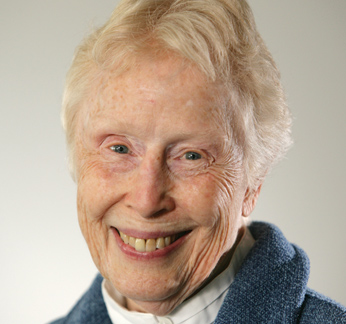Benedictine Sister Works to Eliminate the Death Penalty
May Christ bring us all together to everlasting life. Rule of BenedictRace relations in the south were still poor and sometimes dangerous back in the 1970’s. Black residents were often targets of police harassment. They might be stopped for driving. They might be frisked for walking down the street. They might be jailed for … existing.
And they were the first suspects in any heinous crime.
Sister Helen Carey, OSB learned much about that unjust culture during her years of service as a teacher in Kentucky, and her growing awareness grew into activism. She began by teaching social justice values in her philosophy and ethics classes. She helped her predominantly white students interact with – and lose their fear of – black residents by taking them to the African Methodist Episcopal Church (AME) for Sunday services. She spoke out against injustice. And she spoke out against the death penalty.
Called to life … despite tragedy
In 1998, as Sr. Helen – now back in Illinois – continued to advocate against the death penalty, a former Benedictine Sister confronted unimaginable tragedy. Vicki Schieber’s beautiful college daughter, Shannon, was raped and murdered in Philadelphia.
“We were all devastated for Vicki and her husband,” Sr. Helen says. “But I didn’t change my commitment to life … and neither did Vicki.”
Vicki and her husband not only asked the prosecutor to not seek the death penalty, they helped found Murder Victims’ Families Against Capital Punishment and are active in the Catholic Mobilizing Network to End the Use of the Death Penalty.
“Jesus is clear in the Gospel of Matthew,” Sr. Helen says. “We are not to kill, period. This year our community drafted a statement against the death penalty (see Sr. Sandra Brunenn’s letter, page 2). We are called to life. All life. We take that quite seriously.”
And if the life question is not enough to convince the legislators she has sought to influence, there is the question of wrongful conviction. To wit, hundreds people have been exonerated through DNA evidence after serving an average of 13 years in prison for crimes they didn’t commit.
“Thirty-three states still have the death penalty,” Sr. Helen says. “We have a long way to go.”
Walking with prisoners today
Today, Sr. Helen has joined other Benedictine Sisters in communicating with prisoners, both through letters and, occasionally, in person.
“I write to two men who were on death row and now are serving sentences of life without parole,” she says. “They are so grateful for my prayers, my thoughts, my care. But I gain much from them as well. I understand their isolation and grief. They are sorry for what they did.
“One of the men has lost both of his parents since his incarceration. He also lost his only sibling in a terrible car crash. He has been terribly depressed. Imagine losing everyone who ever loved you. No one can live that way. I give him my love.
“They also help me understand what an incredible blessing little things can be. Every letter, every card they get is a huge plus in their day. Their worlds are pretty gray and monotonous.”
But what about what they did to land in prison? Should we care that their worlds are so gray?
“We don’t know where they were when they committed their crimes,” Sr. Helen says. “Were they on drugs? Were they angry and fearful? What kind of cruel upbringing might they have had?
“Forgiveness is commanded by Jesus, and we all need it.”
